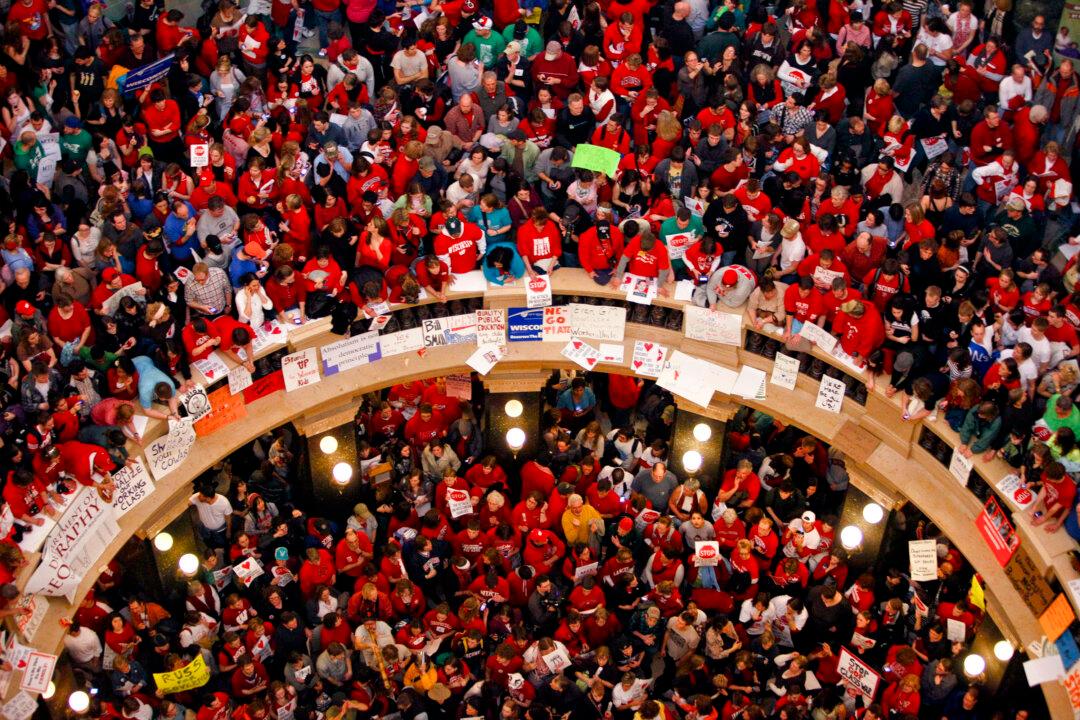Wisconsin public workers and teachers unions scored a major legal victory on Dec. 2 with a ruling that restores collective bargaining rights, which they had lost under a 2011 state law that sparked weeks of protests and turned the state into the focal point of the national battle over union rights.
The law, Act 10, effectively ended the ability of most public employees to bargain on wage increases and other issues, and forced them to pay more for health insurance and retirement benefits.





